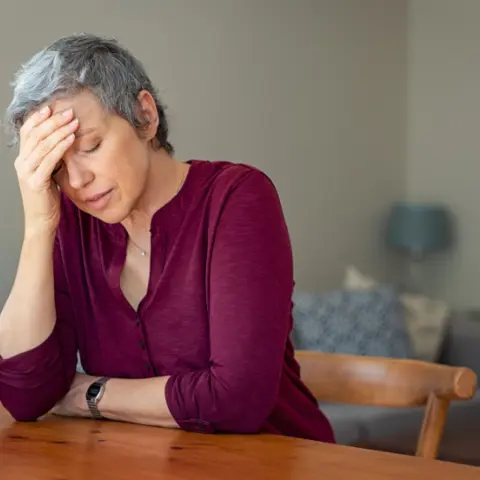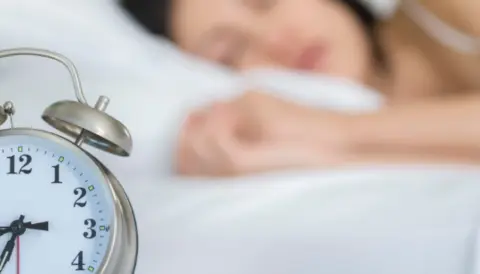DEPRESSION IN MENOPAUSE
Depression in Menopause is more common than you may think. Depression... the word alone sends endless wave of unwelcome ideas and uneasy emotions, with stigma , misconception and discrimination associated with it still alive even these days.
Depression...Ugh..... This word alone can send endless wave of unwelcome ideas and uneasy emotions, well frankly speaking. True, because who would want to have depression as an illness? No one of course!
However, if we say depression in menopause, well, it is a whole different story. Why? Because the menopause in women is a natural process among ages 45 - 55. Given that it is natural, there is a probability that anyone undergoing menopause can have it as one of the complications of menopause or even after menopause.
Menopause refers to the time when your menstrual period stops and when your ovaries stop producing eggs. The hormone estrogen in the body also declines, fluctuates or becomes very low. And so fluctuating hormones would mean mood swings, anxiety, depression and along with other complications and side effects of menopause.
Depression In Menopause - How Likely Is It?
Perimenopause or transition to menopause is the first stage of menopause.
It is in this time that menstrual periods start to be irregular - longer or shorter duration and heavy or light flow accompanied by declining oestrogen production from your ovaries.
Hence, it is in this stage where depression, anxiety and mood swings are all high and remarkable.
8 Risk Factors of Depression
According to the Healthline’s website, the following are risk factors of depression in menopause, well practically due to decline of oestrogen hormones: (2)
- The feeling of having no support from your loved ones
- Stresses from work, family members and friends
- Being unhappy about family and work environment as well as financial matters
- Anxiety
- Lack of physical activity
- Previous depression diagnosis (before menopause)
- Negative idea toward menopause
- Smoking habits
“Depression is a more common and serious emotional side effect of menopause. It affects up to 1 out of every 5 women as they progress through menopause,” according to Medical News Today. (1)
Our Organic Herbal Teas may help.
7 Symptoms Of Depression
Having information regarding risk factors will probably lead us to think of ways and strategies in order to lessen the said risks. Seems I heard these risks and actually observed these on middle-aged mothers.
It is really important to be knowledgeable and taking the initiative to do some changes on your routine and perspective can be quite a challenge, we understand yet you can win!
Moreover, look for the following symptoms of depression in menopause, as follows: (2)
- Being forgetful
- Not being able to focus or make good decisions Lack of vigor to do some activities you previously enjoyed
- Sleeping irregularities
- Frustrations and outbursts of emotions
- Feeling of worthlessness
- Unexplained physical pain
- Loss of appetite
5 Ways You Can Do Now
To Help With Depression In Menopause
There are quite a few ways to manage depression in menopause. It can be medications, therapy and changes in your lifestyle. However, it is very wise on your part to consult your physician first before deciding what is the best option for you. Remember, they know better.
You might first want to try changing some in your lifestyle. Changing some may go a long way to improve your health: (2)
- Get enough exercise. You can at least have 30 minutes of exercise a day within 5 days a week. This time of exercise can help you relieve yourself of your daily stresses and not to focus on the things you worry, your diversion in another term. It can also lighten your mood and increase your energy in order for you to do your daily activities. (We know you really want to stay away from stress as much as possible, it pictures a very ideal situation - one that is stress-free!
- Get enough sleep. Lack of sleep usually leads to feeling of restlessness or irritability and loss of focus or concentration which may eventually make you more prone to depression. Especially because in menopause, you might encounter sleeping problems due to night sweats and hot flashes. So trying to have enough sleep will help you recharge your body. A well-ventilated, dark and comfortable bedroom can help you achieve proper and enough sleep.
- Quit smoking. Smoking is really bad for anyone’s health and so much more so during menopause.
- Eat healthy. You are what you eat, diet affects your menopause symptoms and that includes including irritability and depression. There is a growing evidence that fresh fruits and vegetables with healthy fats and foods high in phytoestrogens may help relieve your symptoms. While other foods like highly processed foods, caffeine, alcohol and high in salt content may exacerbate your symptoms so choose your food wisely.
- Join support groups or forums where the members all go through the same journey in menopause and share each of their experiences and listen to each other and understanding what they are all going through. This can help you feel that someone cares for you and that you are not the only one who is experiencing all those things.
Hormone replacement therapy is increasingly popular nowadays. Since, there is a decline of oestrogen hormones, your physician may administer oestrogen through pills or a skin patch. Yet, there is a downside with this kind of treatment, as with any other kind of treatment because the rate of blood clots and breast cancer is getting higher should you opt for this kind of treatment. (2)
The other one is the more common treatment for depression which are antidepressants drugs. Depending on the diagnosis of your physician, the duration of use of these drugs - may it be for a short time just to help your body go through the transition to menopause or even quite a long duration. Another form of therapy is the talk therapy. You may go and talk to a trained therapist so that the therapist can help you deal with your situation. (2)
Whatever you may decide to choose, with positivity and efforts, you can overcome depression in menopause!
REFERENCES
(1) https://www.medicalnewstoday.com/articles/317566
(2) https://www.healthline.com/health/menopause/mental-health#risks
RELATED POSTS


DEPRESSION IN MENOPAUSE
Depression in Menopause is more common than you may think.

MENOPAUSE AND INSOMIA
This is a more common complaint in women than in men and is detrimental to your health.

MENOPAUSE & HYPERTENSION
The onset of hypertension during menopause can cause additional concerns to women's health.

MENOPAUSE & WEIGHT GAIN
Weight gain can rob you of expanded activities you can do before and foods you want to eat - yes, because you...

MENOPAUSE & HOT FLASHES
One of the most common complications of menopause is probably the hot flashes and the one that can last for a long time...
EXPLORE

STAGES OF MENOPAUSE
The clues and symptoms are the result of unbalanced and changing hormone levels of oestrogen in your body.

COMPLICATIONS
Complications of menopause - the risks women face for certain health problems; heart disease, depression, weight gain, insomnia, hypertension, osteoporosis

MENOQUOTES
There are 3 billion women who, sooner or later will experience Menopause but many still find it uncomfortable to talk about… it’s about time we change this.